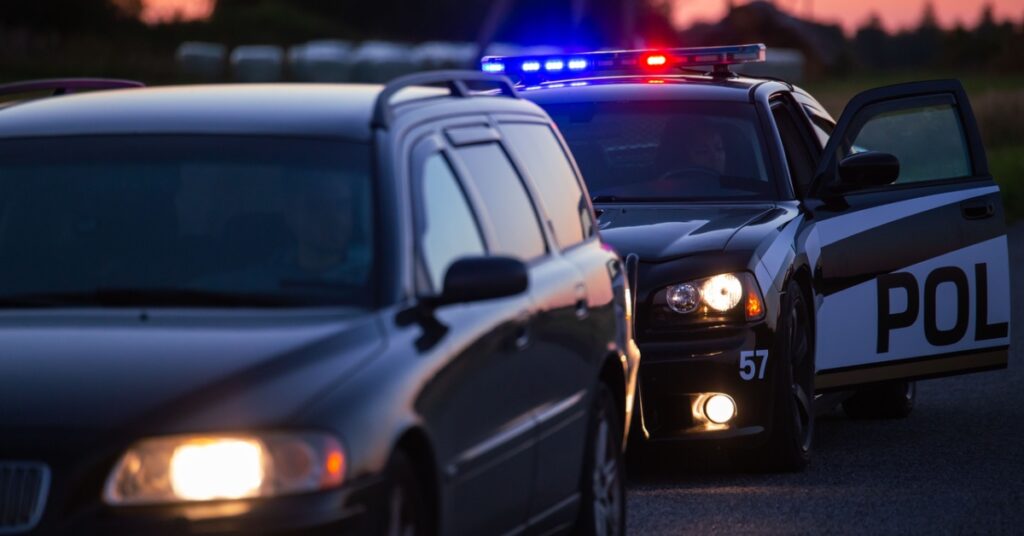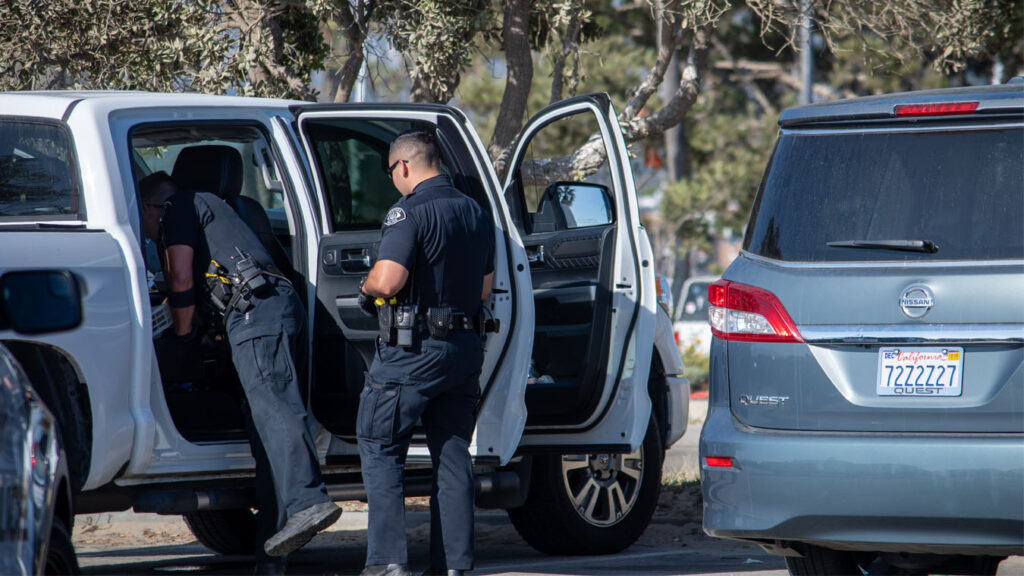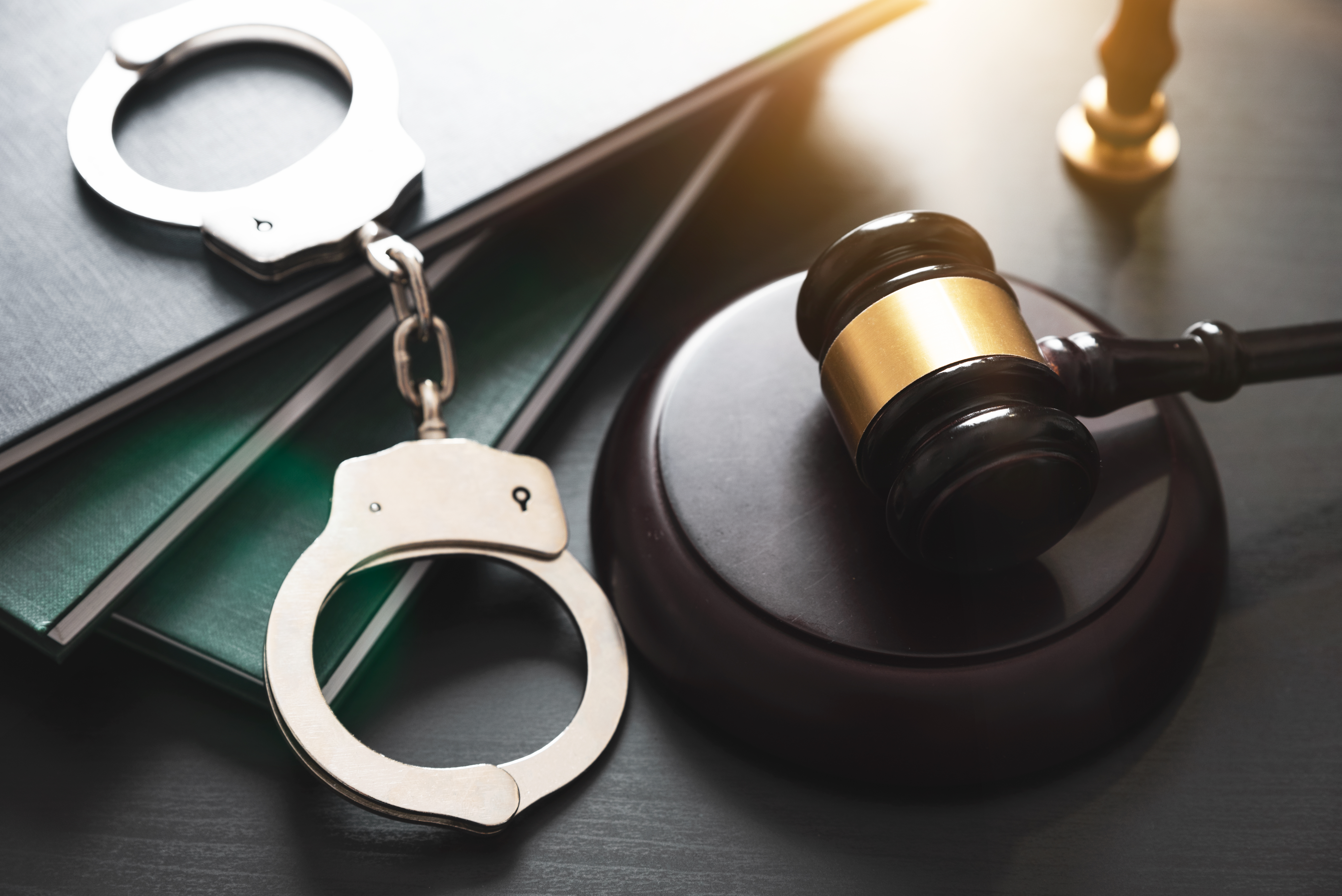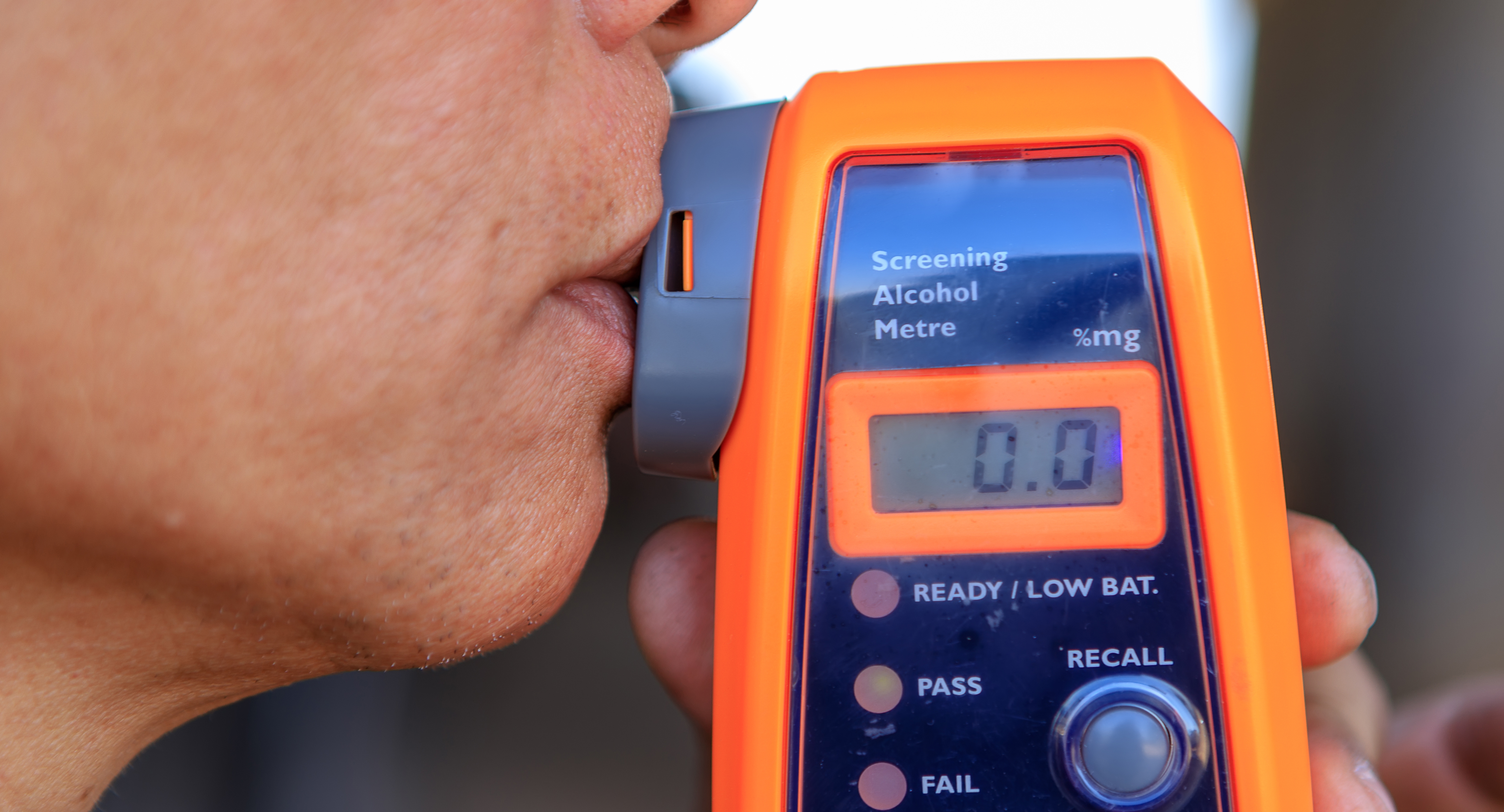Traffic stops are always stressful. You’re probably nervous and not thinking clearly. But that won’t make a difference to the police officer who pulled you over.
That officer judges you from the moment you roll down your window and will decide almost instantly whether you’ll be detained.
Remain calm, and don’t panic. You may have been pulled over for a very simple reason, like a burned-out brake light.
We always tell our clients that it’s crucial that you understand your rights and know how to protect yourself.
Stay Calm and Composed
Traffic stops are relatively common. In 2021, 1,687,895 Texas motorists were pulled over for potential traffic violations, and only 35,226 ended in arrest.
When you’re pulled over, your first instinct may be to defend yourself or disagree with the officer’s allegations. Don’t panic or act belligerent. Calmly provide your name, address, and date of birth. When asked for your driver’s license and proof of insurance, you should provide it, but be sure to tell the officer before you reach for it. Be polite, but don’t answer any unnecessary questions or try to make small talk.
Police officers are trained to extract information through seemingly casual questioning. Don’t answer anything like, “Do you know why I pulled you over?” Just respond with, “I’m not sure why.”
Make the officer tell you exactly why you’ve been stopped. Do not volunteer any guesses of your own. Just stick with “I’m not sure” until the officer tells you himself.
Once you know why you’ve been pulled over, you can use that information to determine your next step. If it’s something simple, like a broken tail light, there’s no real need to worry about legal repercussions or incriminating yourself. Just be polite and hope you’re allowed to go with a warning.
However, if you have anything illegal in the vehicle or have consumed any drugs or alcohol, you’ll need to consider your next moves carefully.
Ask, “Am I Being Detained?”
If the police officer has pulled you over for a serious reason, for example, a suspected DWI, your actions during the traffic stop will potentially be used to build a case against you.
Ask if you’re being detained. It’s likely that they will try to avoid answering you. If they continue questioning, tell them that your attorney has recommended that you don’t answer any further questions.
If you’re told that you’re not being detained, ask if you’re free to leave.
If they won’t give you a straight answer about whether you’re being detained, keep asking. This is an important step.
Detained doesn’t necessarily mean arrested. The distinction is important. Sometimes, police will make it clear that you’re under arrest — for example, some officers will specifically state that you’re under arrest and place you in handcuffs.
Some officers may be less clear about whether you’re being arrested and try to use the difference to their advantage.
If they tell you you’re being detained, ask them point blank if you’re being arrested.
Once you’re arrested, police must read your rights before they can ask you any further questions. After that, once you tell them you refuse to answer any questions without an attorney present, any question you answer should be inadmissible in court.

Possible Outcomes of Being Pulled Over
There are four likely outcomes from a traffic stop. The worst-case scenario is that you’re detained and arrested. However, don’t panic. Though you may fear that the officer pulled you over for a serious transgression, it could turn out to be something minor. You could be free to go, be issued a warning, or get a traffic ticket.
This is why how you choose to interact with the officer is so important.
What are My Rights During a Traffic Stop?
You should provide your name, driver’s license, and proof of insurance if requested, but you do not have to say anything else. Don’t take any unnecessary risks.
You should:
- Remain in your vehicle unless a police officer tells you to exit (if the officer tells you to exit your vehicle, you must comply)
- Turn on your vehicle’s internal lights and lower your window when the officer approaches you
- Keep your hands visible – don’t reach for your driver’s license or other documents until the officer asks you to
- If you have a weapon in the vehicle, tell the officer immediately
- Ask to see their credentials if the police officer isn’t in uniform
Police Can’t Pull You Over Without a Reasonable Suspicion
Police can’t pull you over simply because they feel like it. They must be able to establish reasonable suspicion or probable cause in order to pull you over. But what does that mean?
- Reasonable suspicion: A justifiable suspicion based on specific facts or circumstances that justifies stopping and/or searching a person they believe is involved in criminal activity.
- Probable cause: This requires police to have a reasonable basis to believe that a crime may have been committed (for an arrest) or that evidence of a crime is present (for a search).
In other words, if the officer has no sign or indication that you’ve done anything wrong, they have no grounds to stop you. If you can prove that an officer pulled you over without probable cause or reasonable suspicion, we may be able to get the case against you dismissed.
However, issues like failing to use a turn signal, speeding, or running a traffic light are enough to provide probable cause.
Miranda Rights Must Be Read Before Official Questioning
Even if you’re not familiar with the term Miranda rights, you’ve certainly heard them in movies or TV shows. Once a police officer has arrested you and taken you into custody, the officer must recite these rights for you before the start of any official questioning (also known as “custodial interrogation”).
It’s important to note that this doesn’t apply to questions asked before the officer decides to detain you. Your Miranda rights only apply if you are asked questions while in police custody. If your rights are not read, the court may throw out anything said while answering police questions.
However, any voluntary statements you make that are not a direct response to police questions can be used against you, even if you have never been notified of your rights.
As soon as you’re arrested, tell the police you don’t wish to speak without an attorney present, and don’t volunteer any additional information. If they continue to question you after that, your answers will likely be inadmissible in court.
Information You Must Provide
Anyone who is pulled over must provide the following:
- Your name
- Your address
- Date of birth
- Driver’s license
- Proof of insurance
For now, digital copies of your driver’s license are not accepted. However, that will be changing.
Right to Remain Silent
If a police officer asks you why you’ve been pulled over, the correct answer is always “no.” Don’t guess. Police officers phrase questions in ways that encourage you to provide extra information.
You don’t have to answer any questions beyond the basic information, and you shouldn’t.
If the officer continues asking questions without telling you why you were pulled over, don’t answer them. Be polite. Say something along the lines of “I’m sorry, but my friend is a lawyer, and he has told me never to speak to police without an attorney present.”
It’s possible that this may make police suspicious that you have something to hide. But they cannot arrest you for refusing to answer their questions, and though it might annoy police, it won’t change their minds about whether to detain you.
Keep your hands in plain sight. Do not make sudden moves. Tell them what you’re doing if you need to reach for your purse or wallet.
Record the Stop
We advise clients to record conversations with the police (this is perfectly legal in Texas). Remember that the police are also recording you, and they won’t hesitate to use those recordings against you in court.

Right to Refuse a Vehicle Search
If an officer asks you to get out of your vehicle, you must comply. Don’t make them force you out of the car. They will do it, and it will be unpleasant.
However, if the officer wants to search your vehicle, you DO NOT need to consent. If they search anyway, make it clear that they are doing so without your permission.
If the officer spots something inside your car in plain view, they are allowed to examine that item. Depending on the item, it could give them probable cause to search the rest of your car for illegal items, regardless of whether you consent.
Right to Refuse to Take Field Sobriety or Breath Tests
If a police officer suspects you’re intoxicated, they may ask you to consent to a field sobriety test or a portable breathalyzer test. Before an arrest in Texas, you can legally refuse to submit to any blood alcohol concentration testing without penalty.
These tests can be notoriously inaccurate, and we recommend skipping them.
If you’re arrested, the stakes change. Though you can continue to refuse to voluntarily submit to testing, you risk having your driver’s license suspended, and it’s likely that officers will simply obtain a warrant that forces you to comply with testing.
READ MORE: Are field sobriety tests mandatory in Texas?
Right to an Attorney
If you’re arrested and taken to a police station, tell the officer once again that you’d like to have an attorney present, then contact us as soon as possible. That should be enough to stop the questioning until an attorney arrives. If the officer continues to question you, it may be grounds for a case dismissal.
More Commonly Asked Questions
Here are some other questions we often get about traffic stops.
What Will Happen to My Car If I’m Arrested After a Traffic Stop?
If you’re arrested during a traffic stop, police will decide what happens to your car. There are a few different options, depending on the circumstances of the arrest and the charges you face.
- A passenger could be allowed to operate your vehicle
- Police may be willing to wait for a friend or family member to get the vehicle
- They will arrange to have the car towed and impounded
What Will Happen to My Driver’s License?
You should be able to keep your driver’s license after an arrest in Texas.
How Much Time Will I Spend in Jail?
If you’re arrested, you typically won’t spend a significant amount of time in jail.
You will be magistrated, which is supposed to be scheduled within 48 to 72 hours but may not take that long. At that hearing, a judge will determine whether you should be released on bail. If bail is set, you will be released once that payment has been made.




